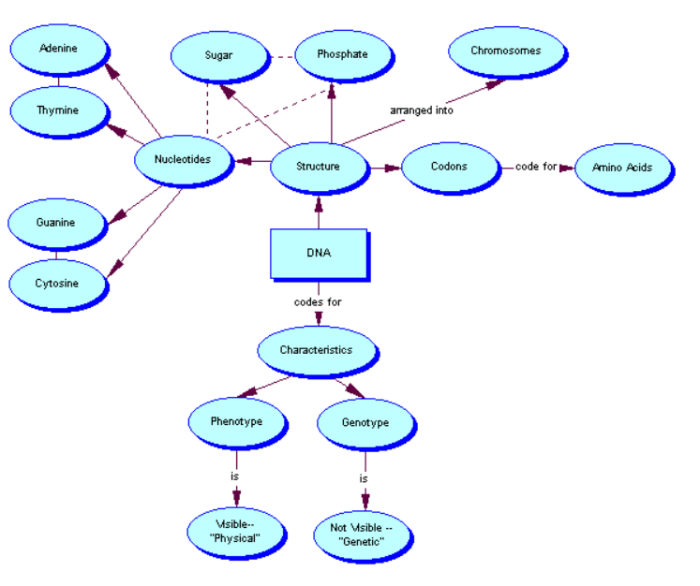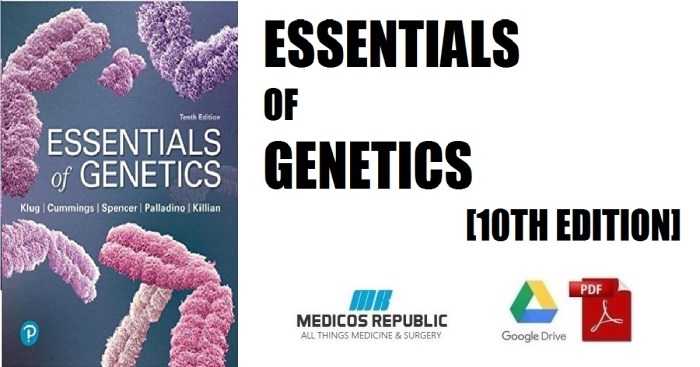Genetics essentials concepts and connections – In the realm of biological sciences, genetics holds a pivotal position, unraveling the intricate tapestry of life through its essential concepts and far-reaching connections. Genetics Essentials: Concepts and Connections delves into the fundamental principles that govern heredity, exploring the molecular underpinnings of genetic information and its profound impact on our health, evolution, and society.
From the pioneering discoveries of Gregor Mendel to the advent of cutting-edge genetic technologies, this comprehensive guide illuminates the intricate mechanisms that shape our genetic heritage. With clarity and precision, it unravels the mysteries of DNA and RNA, tracing their role in the transmission and expression of genetic information.
1. Fundamental Concepts of Genetics: Genetics Essentials Concepts And Connections

Genetics is the study of heredity and variation in living organisms. It seeks to understand how traits are passed down from parents to offspring and how they vary within populations.
Principles of Mendelian Inheritance
Gregor Mendel, an Austrian monk, conducted groundbreaking experiments with pea plants in the mid-1800s. His work laid the foundation for the principles of Mendelian inheritance, which explain how traits are inherited in a predictable manner. Mendel’s principles include:
- Principle of Segregation:Each parent contributes one allele (version) of a gene to their offspring.
- Principle of Independent Assortment:The inheritance of one gene is independent of the inheritance of another gene.
Role of DNA and RNA in Genetic Information
The genetic material of all living organisms is DNA (deoxyribonucleic acid). DNA is a molecule that stores genetic information in the form of a code. This code is composed of four different nucleotides: adenine (A), cytosine (C), guanine (G), and thymine (T).
The sequence of these nucleotides determines the genetic makeup of an organism.RNA (ribonucleic acid) is a molecule that plays a crucial role in protein synthesis. RNA is transcribed from DNA and carries the genetic code to the ribosomes, where proteins are assembled.
Genetic Variation and Its Sources, Genetics essentials concepts and connections
Genetic variation refers to the differences in genetic makeup among individuals within a population. This variation can arise from several sources:
- Mutations:Changes in the DNA sequence that can occur randomly or be induced by environmental factors.
- Recombination:The exchange of genetic material between homologous chromosomes during meiosis.
- Gene Flow:The movement of genes into or out of a population due to migration.
Question & Answer Hub
What is the central dogma of molecular biology?
The central dogma describes the unidirectional flow of genetic information from DNA to RNA to protein.
How does genetic variation contribute to evolution?
Genetic variation provides the raw material for natural selection to act upon, driving the evolution of new traits and adaptations.
What are the ethical considerations surrounding genetic testing?
Genetic testing raises ethical concerns regarding privacy, discrimination, and the potential misuse of genetic information.

